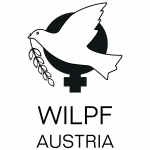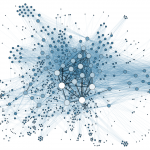 Women’s International League for Peace and Freedom (WILPF) Austria (Facebook)
Women’s International League for Peace and Freedom (WILPF) Austria (Facebook)
1915 wurde in Den Haag die Women’s International League for Peace and Freedom (WILPF) / Internationale Frauenliga für Frieden und Freiheit (IFFF) gegründet. 1921 fand in Wien ihr dritter große Kongress statt.
Heute ist die WILPF die vermutlich älteste noch bestehende internationale Frauen*friedens-Organisation. Soeben haben rund ein Dutzend Frauen* an diese geschichtsträchtige Vereinigung angeknüpft und eine WILPF-Austria Gruppe gegründet.
Die Aktivistinnen* möchten die Gründung von WILPF-Austria mit einer Veranstaltung feiern. Dabei wollen sie einen Bogen vom Kongress ihrer feministischen Ahninnen* im Jahr 1921 bis ins Jahr 2021 spannen. Die Veranstaltung hat diese zwei Teile:
- 1921-2021: Women’s International League for Peace and Freedom. Then and Now! – Eröffnungs-Veranstaltung
Zeit: Fr. 09.07.2021, 18:00–21:00 Uhr
Ort: Musikverein, Gläserner Saal, Musikvereinspl. 1, 1010 Wien
Vorträge von Adelheid Pichler, Brigitte Rath, Leonor Sáez-Méndez und Clara-Anna Egger zur Frauen*-Friedensbewegung. Vorstellung von WILPF und WILPF Austria mit vielstimmiger Beteiligung aus Europa, offizieller Politik und feministischen Organisationen, einem Kurzfilm, Musik und einer Frauenausstellung aus einem Flüchtlingshaus. (Link)
- 1921-2021: WILPF und LGBTIQ Fragen – Inputs und Diskussion
Zeit: Sa. 10.07.2021, 11:00–13:00 Uhr
Ort: Yella Yella, Seestadt Aspern, Maria-Tusch-Str. 2/1, 1220 Wien
Vortrag von Clara-Anna Egger (Historikerin) zu Yella Hertzka, Inputs von Birge Krondorfer (Philosophin) zum Bild der ‚friedlichen Frauen‘, Rosa Logar (WILPF Austria) zum drohenden Backlash von LGBTIQ-Rechten und Alina Zachar (WASt, angefragt) zu Cybergewalt gegen LGBTIQ; Moderation: Meike Lauggas, Historikerin. Eine Kooperation von WILPF Austria, Frauenhetz und Yella Yella Nachbar_innentreff. (Link)
Anmeldung und gesamtes Programm Continue reading




 STICHWORT. Archiv der Frauen- und Lesbenbewegung
STICHWORT. Archiv der Frauen- und Lesbenbewegung 

